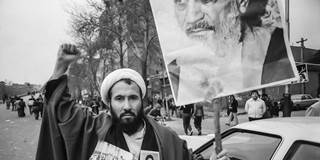 Kaveh Kazemi/Getty Images
Kaveh Kazemi/Getty Images
伊斯兰革命40年
布莱克斯堡,弗吉尼亚州—本周,伊朗伊斯兰共和国迎来了建国40周年。但是,在国家深陷严重经济危机之际,所有人嘴边的问题——不管是伊朗人还是海外侨民——似乎都是伊斯兰革命是否真的改善了伊朗人民的生活。
去年5月,美国撤出了2015年联合全面行动计划——其更有名的名字是伊朗核协议——重新开始对伊朗采取最严厉的制裁,此后,伊朗经济一蹶不振。伊朗货币跌去了70%的价值,物价按年率计算涨幅已达40%,已然表现不佳的经济雪上加霜,三分之一大学毕业生找不到工作。
美国总统特朗普的政府似乎希望,通过制裁的助推,普通伊朗人会揭竿而起,推翻伊斯兰共和国。在去年7月对伊朗裔美国人群体的重要讲话中——这次讲话被广泛视为颠覆政权的号召——美国国务卿蓬佩奥宣称伊斯兰政权让“伊朗陷入了长期经济混乱”,让“三分之一伊朗人……生活在贫困线之下。”
https://prosyn.org/HCdi404zh
To continue reading, register now. It’s free!
Register Now
Already have an account?
Log in



布莱克斯堡,弗吉尼亚州—本周,伊朗伊斯兰共和国迎来了建国40周年。但是,在国家深陷严重经济危机之际,所有人嘴边的问题——不管是伊朗人还是海外侨民——似乎都是伊斯兰革命是否真的改善了伊朗人民的生活。
去年5月,美国撤出了2015年联合全面行动计划——其更有名的名字是伊朗核协议——重新开始对伊朗采取最严厉的制裁,此后,伊朗经济一蹶不振。伊朗货币跌去了70%的价值,物价按年率计算涨幅已达40%,已然表现不佳的经济雪上加霜,三分之一大学毕业生找不到工作。
美国总统特朗普的政府似乎希望,通过制裁的助推,普通伊朗人会揭竿而起,推翻伊斯兰共和国。在去年7月对伊朗裔美国人群体的重要讲话中——这次讲话被广泛视为颠覆政权的号召——美国国务卿蓬佩奥宣称伊斯兰政权让“伊朗陷入了长期经济混乱”,让“三分之一伊朗人……生活在贫困线之下。”